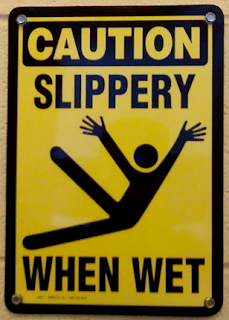24,26,301,2,3Oh3,1,50 Characters in 50 Weeks,1,555,58,Aaron Johnson,1,ABBA,3,Academy Awards,3,Adam Gwon,1,Against Me,1,Alan E. Muraoka,1,Alberto González Vázquez,1,Alec Baldwin,1,Alex Beh,1,Alex Pettyfer,1,Algenis Perez Soto,1,Ali Ewoldt,1,Ali Larter,1,Amazing Videos,43,America Ferrera,3,America's Got Talent,4,American Idol,3,Amy Poehler,5,Ana Gasteyer,1,Anderson Cooper,1,Andrea James,1,Andy Samberg,4,Angelina Jolie,1,Anika Noni Rose,1,Animal Planet,1,Animal Video,15,Animal Videos,160,Animals,220,Animation,24,Anjelah Johnson,4,Anna Boden,1,Anne Rice,1,Annie Baker,1,Anteaters,1,Anthony Mora,2,Anton Chekhov,4,Armadillos,1,Art,5,Arthur Laurents,1,Artists at Play,1,Asher Roth,2,Ashton Kutcher,1,Asian,84,Asian America,146,Asian American Stuff,8,Asians,34,Athens Boys Choir,1,Athol Fugard,1,Audio Clips,9,Audra Mae,1,August Wilson,1,Axe,1,Bacon,1,Ballet,1,Banksy,1,Barack Obama,54,Barbie,3,Barry Manilow,2,Bats,1,Bears,5,Ben Folds,1,Ben Lee,16,Ben Stiller,1,Benjamin Millepied,1,Best,24,Betty White,2,Beverages,1,Beyonce,1,Bill Maher,6,Bill Pullman,1,Birds,3,Bjork,1,Blogathon 2006,52,Blue's Clues,4,Bob Dylan,4,Bong Joon-ho,1,Books,61,Boy Bands,18,Boyzone,4,Brandon Patton,78,Brendan Fraser,2,Brent Rose,4,Brett Claywell,2,Brighde Mullins,1,Bright Eyes,9,Britain's Got Talent,5,Britney Spears,9,Broadway,11,Bruno,1,Burt Reynolds,1,California,1,Cam Gigandet,1,Carlos Mencia,3,Carrie Ann Inaba,1,Carrie Fisher,2,Casey Affleck,3,Cat,3,Catroulette,1,Cats,139,Center Theatre Group,1,Centipede Press,1,Chalk Repertory Theatre,7,Channing Tatum,4,Chantix,2,Chatroulette,2,Cher,1,Cherry Chevapravatdumrong,2,Chickens,2,Chimps,1,China,2,Chinese,10,Chiwetel Ejiofor,1,Chloe Moretz,1,Chocolate,1,Chris Mintz-Plasse,1,Christian Bale,1,Circle X Theatre Co.,1,Clancy's Crab Broiler,1,Coffee Bar,1,Coke,1,Coleman Hough,1,Colin Farrell,2,Colin Firth,1,Comedians,10,Comedies,1,Comedy Central,3,Comments,5,Commercial,8,Commercials,54,Conan O'Brien,3,Concerts,26,Conor Oberst,9,Contests,59,Cool Stuff,4,Corey Feldman,1,Corinne Bailey Rae,1,Craig Ferguson,4,Cry,10,Cuisine,1,Current Events and Politics,265,Cyndi Lauper,1,Czech Republic,1,Dagoba,1,Dalton Ross,1,Damian Aspinall,1,Dance,2,Daniel Henney,1,Daniel Radcliffe,8,Danny Boyle,6,Darren Aronofsky,1,Dave Franco,1,David Bowie,3,David Burnham,1,David Byrne,1,David Cope,1,David Fridlund,1,David Henry Hwang,1,David Letterman,10,David Lynch,2,David Maurice Gil,1,David Saint,1,David Thorne,2,David Wilson,1,Deal or No Deal,5,Debbie Reynolds,1,Deborah S. Craig,1,Deer,1,Demian Mason,1,Demonic Jukebox,11,Denise Richards,1,Denmark,1,Depression,1,Diablo Cody,21,Diet Coke,1,Disney,7,Disneyland,1,Dixieland,1,Documentaries,22,Dog,1,Dogs,16,Dolphins,1,Dominic Cooper,2,Don Hertzfeldt,1,Donovan and the Vast Ancient Conspiracy,2,Donovan Keith,7,Donovan Patton,4,Dr. John,1,Dracula,1,Drake and Josh,5,Drake Bell,8,Dreamworks,1,Duck,1,Ducks,1,Dunja Gry Jensen,1,Dutch Watch,10,East Germany,1,East West Players,31,Edinburgh Fringe Festival,2,Education,3,Edward Gunawan,3,El Cor de la Ciutat,5,Election 2008,93,Elephants,4,Elinor Burkett,1,Ellen DeGeneres,3,Elmo,1,Eminem,1,England,1,Entertainment Weekly,4,Everything Glendale,4,Ewoks,5,Facebook,18,Fancy Hollywood Parties,11,Fantasy,3,FAQs,3,Fashion,9,Fatboy Slim,1,Featured,2,Feodor Chin,1,Ferdinand Marcos,1,Filipino,9,Film,1,Film Review,2,Finland,1,Fireside Chats,6,Food,61,Football,1,Foreign Films,18,Foreskin,3,Forest Whitaker,3,Fox,2,Fox Searchlight,3,France,3,Frankenstein,1,Frequently Assed Questions,1,Funny Animals,147,Funny Ha Ha,569,Funny Kids,4,Funny Stuff,30,Funny Videos,533,Gabriel Fleming,22,Games,2,Garth Stein,4,Gay,1,Gay Marriage,56,Gay Penguins,4,Gay Stuff,21,George Bush,5,George Lucas,2,George Takei,1,Goats,2,Godfrey,1,Goldenspell,1,Good Vibes,3,Gorillas,1,GQ,2,Grandview Topless Coffee Shop,1,Green Day,2,Gregory Itzin,1,Griffin Dunne,1,Guest,1,Guest Bloggers,5,Guilford Adam,1,Gus Van Sant,1,Hal Hartley,1,Halloween Guy Endore,1,Hamsters,4,Hanson,3,Harney Milk,1,Harrison Ford,1,Harry Potter,4,Hayden Christensen,6,Health,7,Henrik Ruben Genz,1,HGTV,1,High School Musical,50,High School Musical 2,6,High School Musical 3,7,Hillary Clinton,10,Hippo,1,Hollywood Blacklist,1,Hollywood Forever Cemetery,3,Horror Movies,29,Horror Stuff,1,Hot Girls,6,Hot Guys,104,Hot Videos,42,HSM2 Comments,6,Ikea,1,Imelda Marcos,1,Impact Theatre,37,Indian,4,Indiana Jones,1,Indonesian,1,Infographic,3,Inochi,1,interview,1,Ira Sukrungruang,2,Ishmael Reed,1,Jack Johnson,1,Jack Savoretti,1,Jacques Audiard,1,Jake Gyllenhaal,1,Jakob Cedergren,1,James Franco,5,James Gunn,1,James McAvoy,5,James Urbaniak,1,Jan Stephenson,1,Jan Terri,1,Jane Austen,1,Jane Goldman,1,Jane Leeves,1,Janet Fitch,1,Japan,11,Japanese,15,Jason Bourne,1,Jason Statham,1,Jay Leno,7,Jazz,1,JD Salinger,4,Jennifer Aniston,1,Jens Lekman,1,Jerome Robbins,1,Jerry Ruiz,1,Jesse Harris,1,Jimmy Kimmel,5,Joan Crawford,1,Joe Biden,14,Joe Calarco,1,Joey McIntyre,7,Joey McKneely,1,John McCain,39,John Pinette,1,John Prine,1,John Wesley Harding,3,Jollibee,1,Jon Stewart,4,Jonathan Ke Quan,4,Jonathan Larson,1,Jordan Nagai,1,Joseph Minion,1,Josh Peck,3,Judge Judy,1,Jukebox Stories,77,Julie Salamon,1,Juliette Binoche,1,Jung Woo-sung,1,Kafka-Inspired Comedy Movie,2,Kangaroos,2,Kate Capshaw,1,Kate Pierson,1,Kate Winslet,1,Katie Couric,5,Keith Olbermann,1,Kiefer Sutherland,9,Kim Jee-woon,1,Kim Min-suk,1,Kirsten Dunst,1,Koalas,1,Korea,6,Korean,4,Kris Kristofferson,1,Kung Zhu,1,Kurt Wimmer,1,Kyle Harris,1,Kyle Lewis,1,Ladies Professional Golf Association,1,Lambs,1,Lance Gross,3,Lars Von Trier,2,Laundromat,16,Laura Bush,1,Lauren Yee,1,Lea Salonga,1,Lee Byung-hun,1,Lee Pace,3,Legos,1,Leonard Bernstein,1,Leonardo DiCaprio,2,Levi Johnston,27,lfred Hitchcock,1,Liam Neeson,1,Liev Schreiber,1,Lin Yu Chun,1,Lions,4,Lisa Kudrow,2,Live Monologue,1,Live Monologues,2,Live-Blogging,2,Local News,4,Lodestone Theatre Ensemble,1,Lorraine Hansberry Theatre,2,Louise Larsen,18,Lucas Grabeel,5,Lucinda Williams,1,Luxembourg,1,M. Night Shyamalan,3,Madonna,1,Magazines,3,Magic,2,Malaysian,2,Malls,4,Mare Winningham,2,Marianne Faithfull,1,Marilyn Hoggatt,1,Marines,1,Mark Wahlberg,8,Martin Scorsese,1,Maru,5,Master of Professional Writing,11,Matt Bateman,1,Matt Damon,1,Matthew Vaughn,1,Maya Rudolph,1,MC Frontalot,4,MC Lars,3,McDonald's,1,McFly,1,Meat Loaf,1,Megan Fox,1,Meryl Streep,2,Mice,1,Michael Ballhaus,1,Michael Buble,1,Michael Bublé,1,Michael Cera,4,Michael DeAntonio,1,Michael Lowenthal,3,Michael Moore,4,Michael Phelps,13,Michelle Obama,5,Mike Leigh,1,Mike Shinoda,1,Mike Valentino,20,Mila Kunis,1,Military,1,Miss Coco Peru,1,Molly Shannon,1,Monkeys,8,Monologue Madness,10,Mormons,6,Most Popular Posts,2,Most Viewed Posts,7,Mother,2,Movie,6,Movie Recommendations,7,Movie Stuff,1,Movies,454,MTV,1,Music,310,Music Recommendations,4,Music Video,19,Music Videos,207,Musical Stuff,1,Musicals,35,My Morning Jacket,1,My Sister,11,Mysterious Skin,21,Nancy Anderson,1,Nancy Elliott,1,Natalie Merchant,1,Natalie Portman,1,NBC,3,Ned Sublette,1,Neil LaBute,8,Neil Patrick Harris,2,Nerdcore,6,Never Look Back (Except Now),7,New Conservatory Theater Center,8,New Kids on the Block,4,New York,2,NFL,1,Nick Gabriel,1,Nick Lowe,6,Nick Swardson,1,Nickelodeon,1,Nicole Atkins,1,Nicole Holofcener,1,Nina Simone,2,Noah Baumbach,1,Noel Alumit,4,Norah Jones,1,North Carolina,1,Odd News,109,Odd Videos,42,Odds and Ends,235,Oklahoma,1,Old Spice,2,Oliver Assayas,1,Oliver Evans,1,Oliver Fish,1,oprah,1,Oscars,3,Otters,1,Owiso Odera,1,Ozzy Osbourne,1,Palo Alto High,2,Pandas,4,Pantages Theatre,1,Paris Hilton,3,Park Eun-kyo,1,Patton Oswalt,2,Paul Greengrass,1,Paul Kikuchi,1,Paul Rudd,1,Peen,7,Pelicans,1,PEN Center USA,2,Penguins,5,Peter Darney,1,Peter Wylie,1,Philip Kan Gotanda,2,Philippines,1,Phillip Noyce,1,Pimone Triplett,2,Pixar,1,Playboy Mansion,2,Playwriting,21,Playwriting Stuff,1,Podcasts,5,Polar Bears,2,Polls,4,Ponder,1,Ponderings,6,Pop Punk,1,Pork Chop,75,Pork Chop's Weight-Loss Challenge,3,Prague,1,Pranks,2,Prints Made Easy,1,Pro Bowl,1,Psy,1,Punk'd,1,Queen,1,Quentin Easter,2,Rabbits,2,Rachel Dratch,1,Randy Newman,3,Raunchy Comedy Movie,3,Reality Shows,7,Regina King,3,Religion,12,Religion Stuff,6,Rent,6,Restricted,1,Return of the Jedi,2,Revolutionary Road,1,Richard Yates,1,Rick Astley,4,Rickrolling,6,Ricky Gervais,1,Robbie Williams,3,Roger Ross Williams,1,Romania,3,Ronald Reagan,1,Royce Reed,1,Rude Guerrilla Theater Company,3,Ryan Fleck,1,Ryan Gosling,4,Ryun Yu,1,Sacha Baron Cohen,7,Sad Commercials,4,Sam Gold,1,Sam Mendes,1,Sandra Tsing Loh,2,Santigold,1,Sapphire,1,Sarah Palin,49,Sarah Silverman,1,Sasha Grey,1,Saturday Night Live,21,Science Fiction,18,Scott Evans,1,Scott Heim,32,Screenwriting,3,Sea Lion,1,Sean Faris,1,Sean Penn,2,Seattle,7,Sesame Street,6,Sharon Jones,1,Sheep,1,Shel Silverstein,1,Shelley Berman,2,Shepard Fairey,1,Shimajiro,3,Shirtless,1,Short Films,2,Sidewalk Studio Theatre,2,Simon and Garfunkel,1,Simon Cowell,1,Singaporean,1,SIS Productions,6,Sketch Comedy,7,Skin Report,1,So Gay,209,Soap Operas,1,Soldiers,1,South Asian,3,South Coast Repertory,3,South Park,3,Sports,25,Squirrels,4,Stand-Up,1,Stanley Williams,2,Star Wars,8,Stephen Colbert,2,Stephen McCauley,1,Stephen Sondheim,1,Steve Burns,4,Steve Carell,1,Steve Martin,1,Steven Soderbergh,1,Steven Spielberg,1,Story,31,Strippers,1,Super Bowl,1,Susan Boyle,4,Suzanne Whang,2,Sweden,5,Tahar Rahim,1,Taiwanese,4,Takashi Murakami,1,Talk Shows,15,Tamlyn Tomita,1,Technology,30,Television,268,Television Stuff,3,Terrance Howard,1,Thai,30,Thai Stuff,4,The Americana,4,The Bilerico Project,50,The Celebrity Apprentice,1,The Coen Brothers,1,The Constellations,1,The Daily Show,4,The Drill Hall,1,The Gaslight Anthem,1,The Goonies,6,The Last Airbender,1,The Life and Times of Pork Chop,19,The Lodger,1,The Lost Coast,1,The Monkees,1,The Muppets,12,The Olympics,11,The Onion,8,The Only Way Is Essex,1,The Proclaimers,1,The Rolling Stones,2,The Simpsons,5,The Tonight Show,3,The Velvet Underground,1,Theater,237,Theater Review,2,Theater Stuff,2,Theatre Recommendation Stuff,23,Thierry Guetta,1,Things I Did,3,Things I Read,8,Think Tank,3,Thomas Bidegain,1,Tigers,2,Tina Fey,7,Tips for Actors,1,Tips for Writers,8,Tips for Writers and Other Artists,3,Tom Gabel,1,Tom Hanks,1,Tom Wilson,1,Tom Wolfe,1,Tori Amos,1,Tortoises,1,Toys,14,Travel,2,Trending,5,True Blood,1,Turkeys,1,Turtles,1,Twin Cities,8,Tyler Perry,3,UCLA,2,United Kingdom,1,Unsung Movies,15,USC,12,Valerie Bertinelli,1,Vampire Weekend,2,Vanessa Anne Hudgens,13,Vermont,2,Video,76,Video Games,10,Videos,980,Vietnamese,1,Views,5,Vincent DeSalvo,1,Wanda Sykes,8,Weezer,4,Weighing Pork Chop,14,Wenda Fong,1,Wendie Malick,1,Wendy Wasserstein,1,Wendy's,1,West Elm,1,Wham,1,What the What,1,Will Ferrell,3,William Shakespeare,2,Willie Nelson,1,Woody Allen,11,Wow,28,Writing,9,Writing Stuff,45,WTF,23,Zac Efron,56,Zac Efron's Ass,4,Zebra,1,Zuiikin English,3,
 [The following is an essay I wrote in 2001 for Callboard magazine (now Theatre Bay Area magazine), in which I wax philosophical about success and failure. Thanks to Peter Varvel for prompting me to dig it out of my archives and liking it enough that I thought it would be worth sharing with you all.]
[The following is an essay I wrote in 2001 for Callboard magazine (now Theatre Bay Area magazine), in which I wax philosophical about success and failure. Thanks to Peter Varvel for prompting me to dig it out of my archives and liking it enough that I thought it would be worth sharing with you all.]



